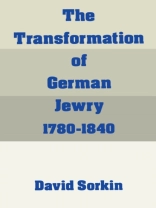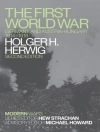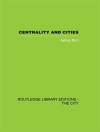The transformation of German Jewry from 1780 to 1840 exemplified a twofold revolution: on one level, the end of the feudal status of Jews as an autonomous community forced them to face a protracted process of political emancipation, a far-reaching social metamorphosis, and growing racial anti-Semitism; yet, on another level, their encounter with the surrounding culture resulted in their own intense cultural productivity. In this ground-breaking study, David Sorkin argues that emancipation and encounter with German culture and society led not to assimilation but to the creation of a new Jewish identity and community–a true and vibrant subculture that produced many of Judaism’s modern movements and fostered a pantheon of outstanding writers, artists, composers, scientists, and academics. He contends that German-Jewish subculture was based not, as widely believed, on nationalistic (Jewish versus German) or religious (Jewish versus Christian) disparities, but rather on the struggle for freedom and social acceptance in German society. By studying German Jewry’s cultural history in its social and political context, as well as in the larger setting of German history, this study firmly asserts that the subculture both distinguished German Jewry from other European Jewish communities and accounted for its members’ prominent role in Jewish and general culture.
David Sorkin
Transformation of German Jewry, 1780-1840 [PDF ebook]
Transformation of German Jewry, 1780-1840 [PDF ebook]
Achetez cet ebook et obtenez-en 1 de plus GRATUITEMENT !
Langue Anglais ● Format PDF ● ISBN 9780195362169 ● Maison d’édition Oup ● Publié 1990 ● Téléchargeable 3 fois ● Devise EUR ● ID 8543590 ● Protection contre la copie Adobe DRM
Nécessite un lecteur de livre électronique compatible DRM












